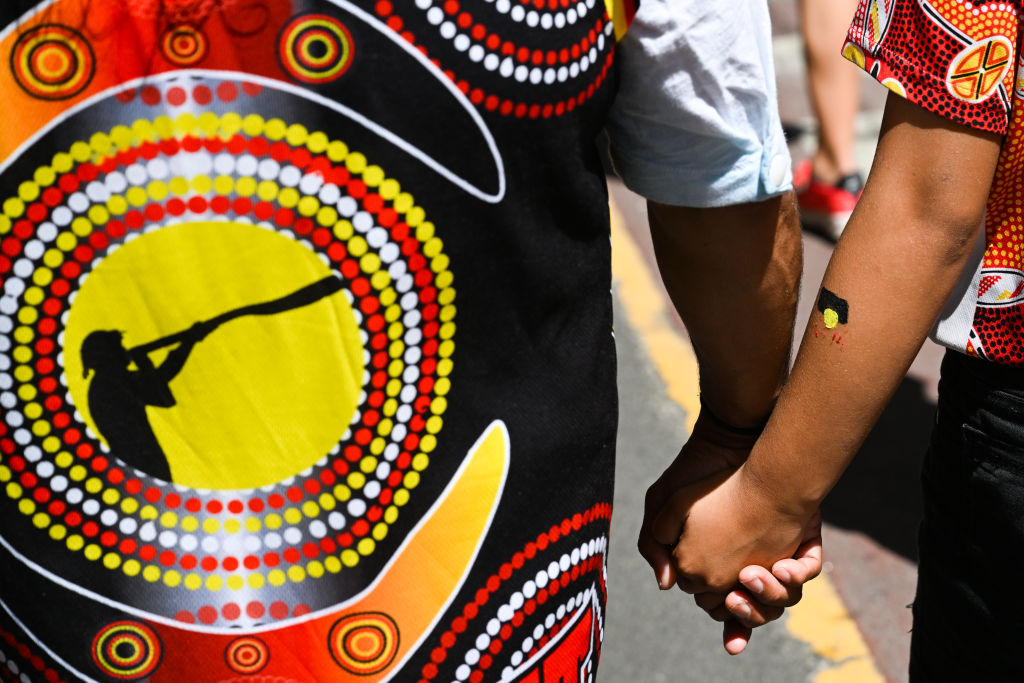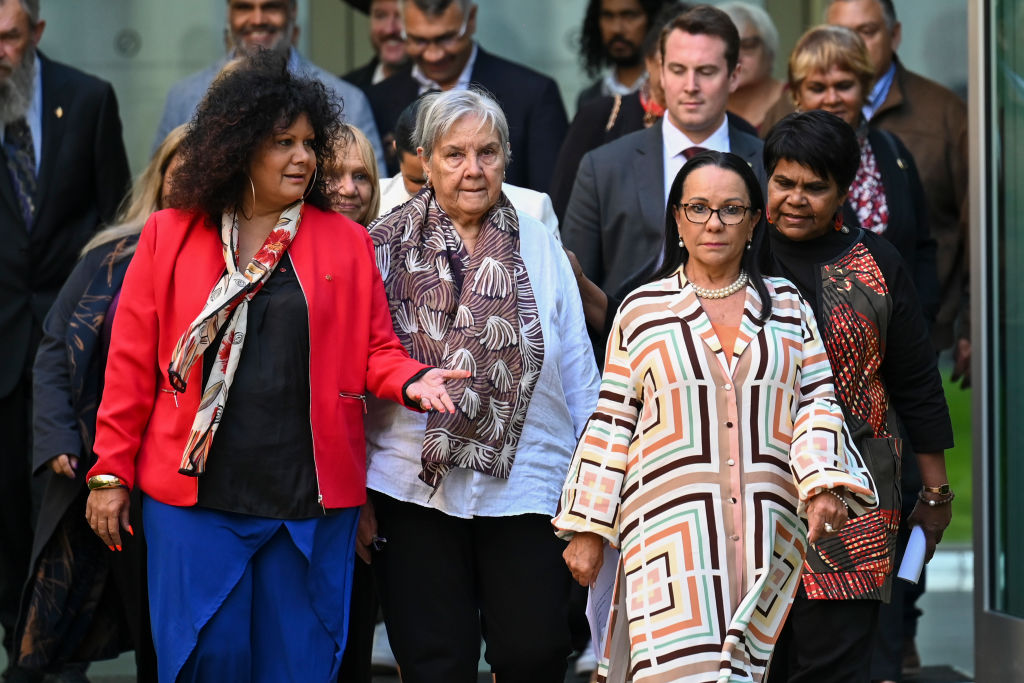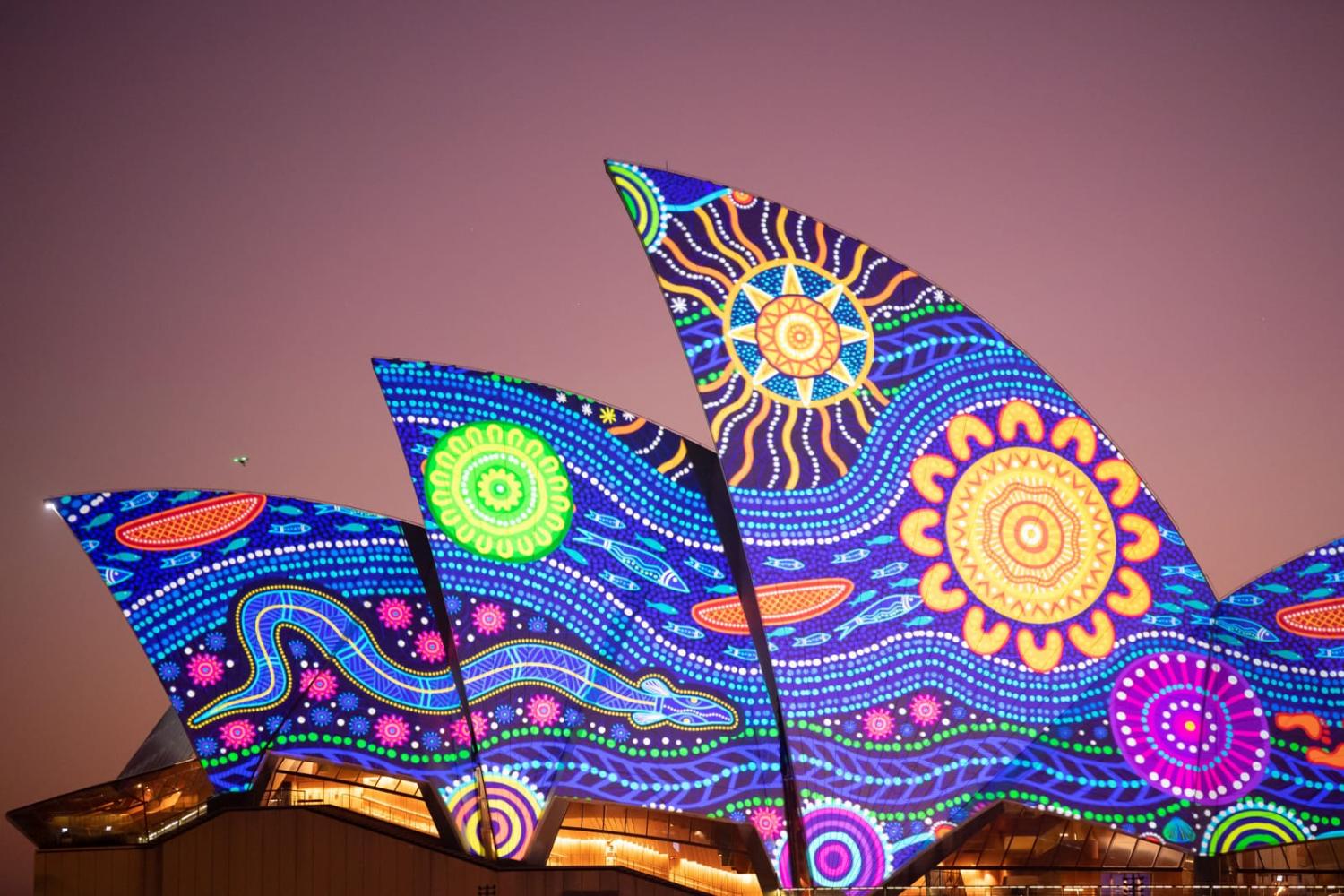Later this year, Australians will vote on whether an Aboriginal and Torres Strait Islander Voice should be enshrined in the Constitution. “The Voice” would represent the interests and perspectives of Australia’s Indigenous people and have the power to “make representations to the Parliament and the Executive Government of the Commonwealth on matters relating to Aboriginal and Torres Strait Islander peoples”. The fundamental purpose is twofold: first, to recognise the special place of Aboriginal and Torres Strait Islander people as Australia’s first inhabitants with an ongoing connection to the land; and second, to help rectify the ongoing injustices and structural inequalities that Indigenous Australians face.
The 2017 Uluru Statement from the Heart originally proposed the Voice model through extensive consultation with Aboriginal and Torres Strait Islander people. “We seek constitutional reforms to empower our people and take a rightful place in our own country”, the statement declares. “When we have power over our destiny our children will flourish. They will walk in two worlds and their culture will be a gift to their country.”
The difficulty for the Voice becoming law, however, lies in Australia’s system for constitutional amendment. A referendum must approve a change with a nationwide majority, as well as majorities in at least four of six states. This requirement of a “double majority”, plus Australians’ inherent constitutional conservatism, has meant that only eight of 44 proposed changes have been successful since 1901, with the last change in 1977. The most recent polling puts support for the Voice at 51 per cent nationally, with narrow majorities in favour in New South Wales, Victoria, South Australia and Tasmania. While the odds are in favour of a “Yes” vote, the result is far from certain.
Naturally, the debate around the Voice has been domestically oriented. But some leaders and commentators have considered what the vote means for perceptions of Australia internationally. In February, Prime Minister Anthony Albanese asked Australians “to think about … how Indigenous Australians will feel if it is not successful, how Australians will feel and how Australia is perceived internationally as well, including our economic partners in the region.”
Megan Davis, an architect of the Voice, and prominent contributor to international forums, has spoken of her confidence that Australians will vote “yes” and has cast the choice in epochal terms. “This is Australia’s moment.”
Pat Anderson, co-chair of the dialogue process that led to the Uluru Statement, has also said that the vote will demonstrate “how all Australians see themselves as a nation and how they’re perceived in the world”.
Former BBC correspondent Nick Bryant has speculated that a “No” vote on the Voice would be an Australian equivalent of a Brexit or Trump moment, arguing that the result could determine international views of the country for years to come:
“A yes vote would help quash any lingering vestiges of the stereotype that Australia is a redneck nation. A no vote could be devastating, and seen as proof that the country is a racial rogue nation.”
Veteran political commentator Michelle Grattan has similarly warned that a “No” vote would be seen overseas “as Australians slapping the country’s Indigenous people in the face”. Academic and columnist James Curran, meanwhile, struck a more restrained view, arguing that criticism from China and Indonesia (though hypocritical given their own records on indigenous rights) is likely, but that “[n]either the American nor British political class would maximise discomfort for Canberra flowing from a No vote”.

While the exact nature and extent of international reaction to the referendum remains to be seen, we can be certain that the world will take notice based on similar instances of single issue “moments” in Australian politics. The apology to the Stolen Generations made news in many countries and was viewed in a positive light. Similarly, the success of the plebiscite on same sex marriage (although not a formal referendum) was noticed internationally and Australia enjoyed a reputational dividend after the “Yes” vote passed by a handsome majority despite strident opposition in conservative press. The Empire State Building in New York was lit up in rainbow to mark the occasion.
With the Voice referendum, a multitude of factors might lead to a “No” vote – but that might be lost overseas, with the focus only on the outcome. It would be easily interpreted as a rebuke of Indigenous empowerment generally, rather than disagreement over the subtleties of the specific model proposed.
Consider the ongoing reputational effects for the United States and United Kingdom from events in 2016 which have both had continuing consequences for the respective country’s international standing and the capacity for influence. Donald Trump’s election and Brexit have, rightly or wrongly, become popular bellwethers of Anglo-American decline. A “No” vote could similarly anchor an underlying perception that Australia is a fundamentally ugly and regressive nation, despite what its people and government might say.
Whatever way the vote falls later this year, the Australian government – in particular the Department of Foreign Affairs and Trade (DFAT) – needs to be ready to explain what this means for the nation’s soft power and diplomacy. Historically, DFAT has been good at anticipating and planning for significant events outside Australia; it’s far less comfortable with the fraught question of how domestic politics affects Australia’s place in the world. It remains unclear, for instance, how much planning DFAT did in 2017 in case Australians rejected same-sex marriage.
The Albanese government has explicitly linked the Voice to the appointment of the Ambassador for First Nations, Justin Mohamed, and its plans to develop a First Nations Foreign Policy Strategy. Linda Burney, Australia’s minister for Indigenous Australians, has said that an “Ambassador for First Nations people will … share our commitment to the Uluru Statement from the Heart and experiences of treaty and truth telling processes.” A “Yes” vote would affirm the ambassador’s mandate and provide a compelling narrative for his international engagement. A “No” vote would, however, put an albatross around the neck of even the most effective diplomat and undermine the sincerity of a First Nations Foreign Policy.

It would be tough to explain a “No” globally, especially so in the Pacific and other postcolonial nations. Australia could also expect the likes of China to use a “No” vote to deflect criticisms about its own human rights record – a tactic it has used before. The question will inevitably be asked: how can the Australian government speak with any authenticity or authority on indigenous rights when it has failed to convince its own people of their importance?
Such questions might be unfair, skipping over the nuance of why “No” might have prevailed, but they are both inevitable and difficult to answer succinctly. Nonetheless, DFAT should be preparing right now for either eventuality with the same intensity and resourcing it devotes to incoming government briefs – the “blue” and “red” books – before each federal election. A clear mandate from the prime minister and foreign minister to do this preparatory work will be crucial.
The “No” book will be the hardest. Bad news sells – so a negative result is likely to generate more attention than a “Yes” vote. Ministers should be well-prepared to face the international media and a global counternarrative should be developed for multilateral forums, helping contextualise the vote and explain what it means. Regional and in some cases country-specific strategies should also be developed that are sensitive to local indigenous politics and history. This will be essential in the Pacific. Communications should focus on other substantive policy steps the government is taking, especially within the Closing the Gap framework, and as well as highlighting the other ways First Nations voices are included and empowered in policymaking.
Ultimately, though, diplomatic PR can only do so much.
The old adage “hope for the best, prepare for the worst” should be the motivating principle for Australian diplomats thinking about the referendum. Its significance – for First Nations Australians and the country more broadly – deserves nothing less.

